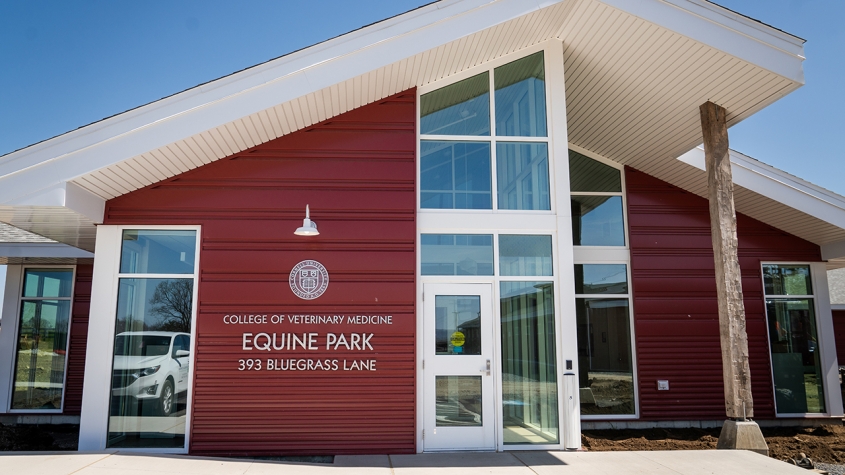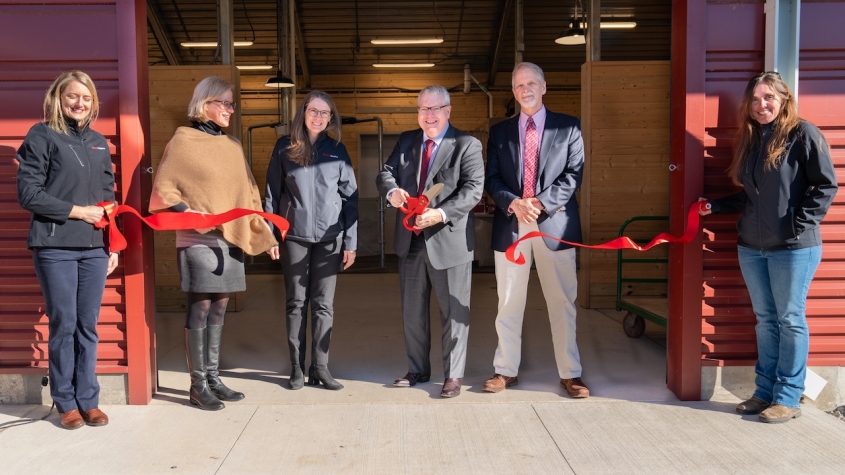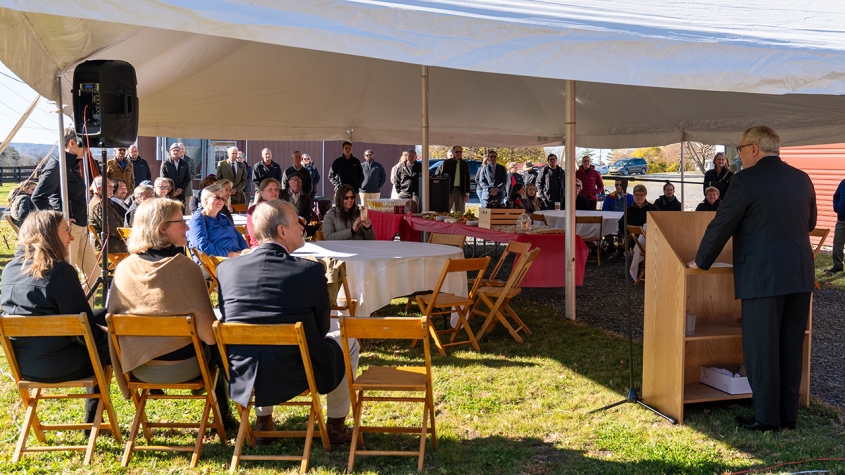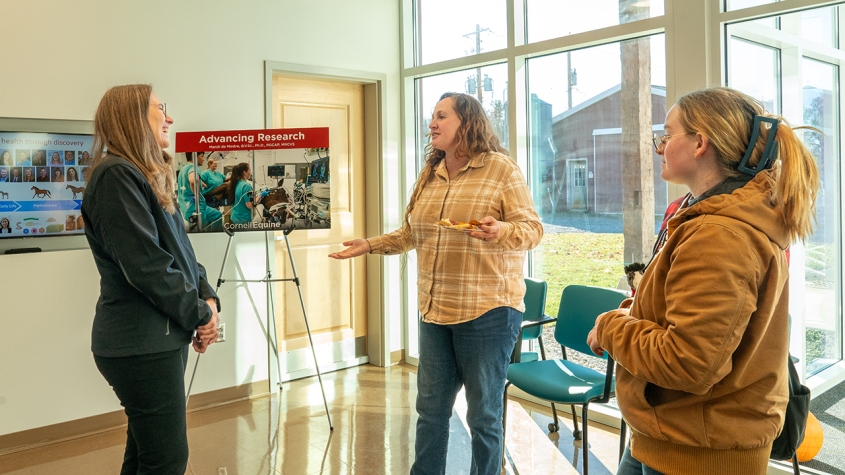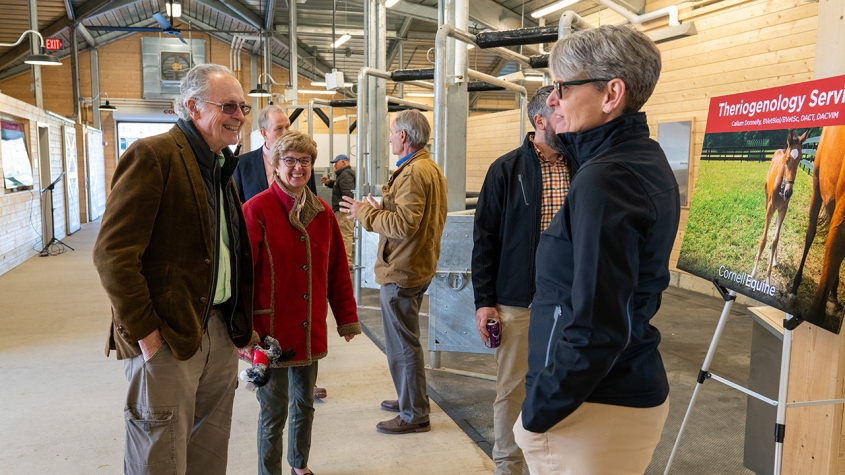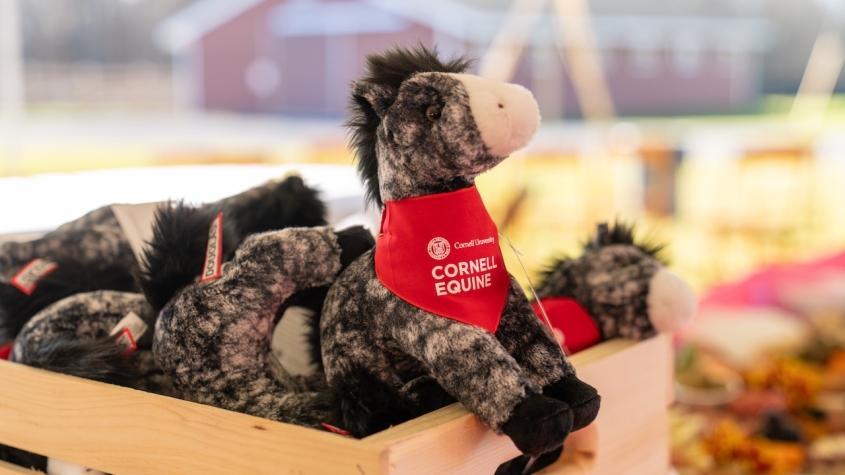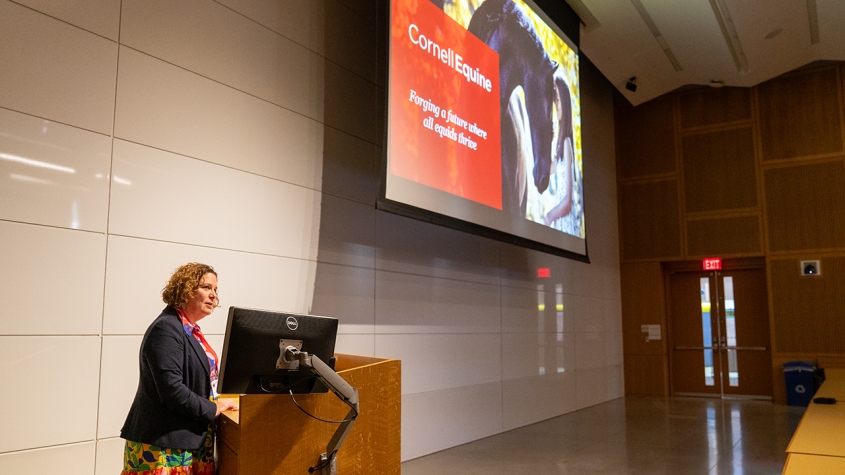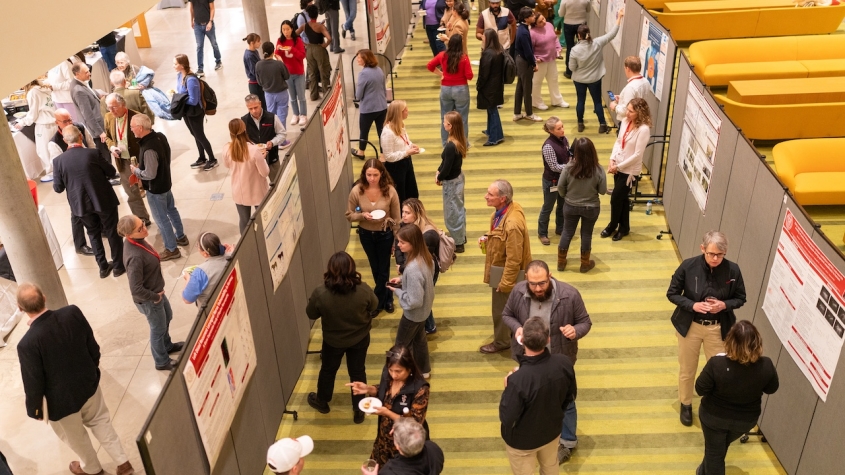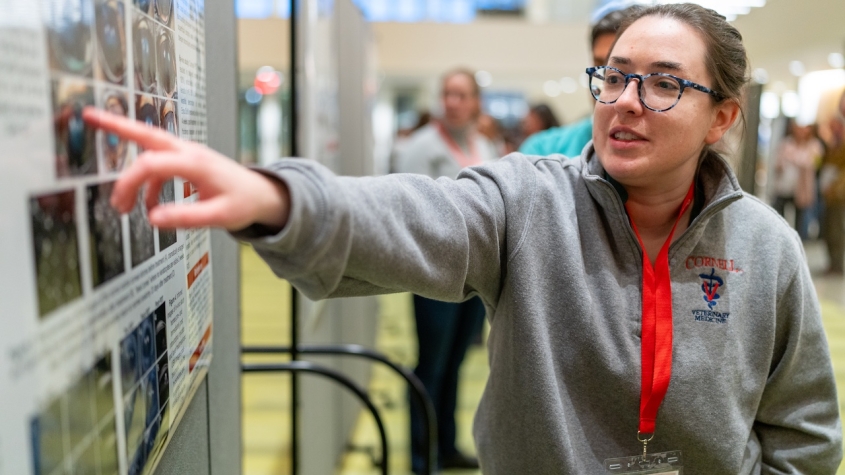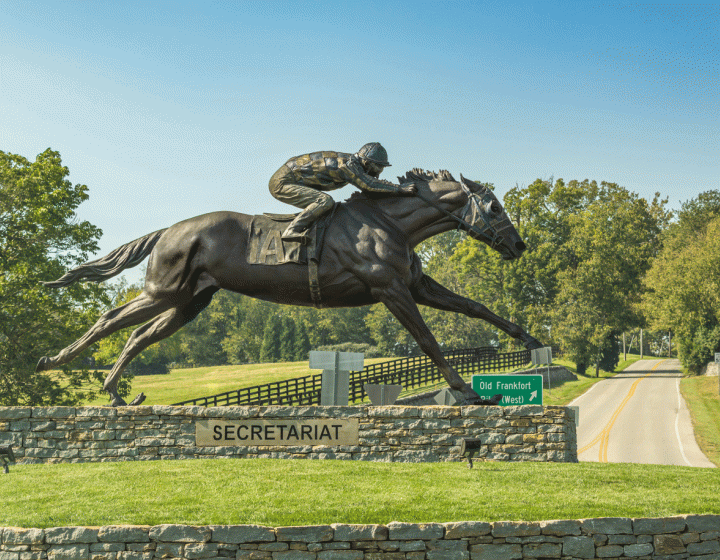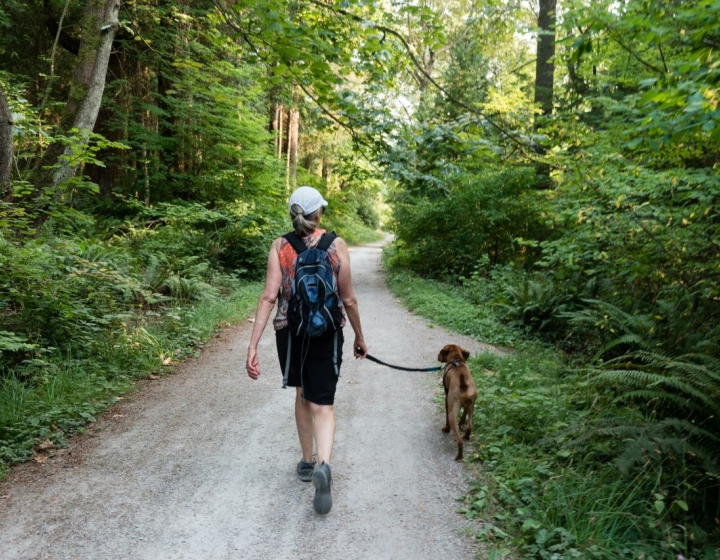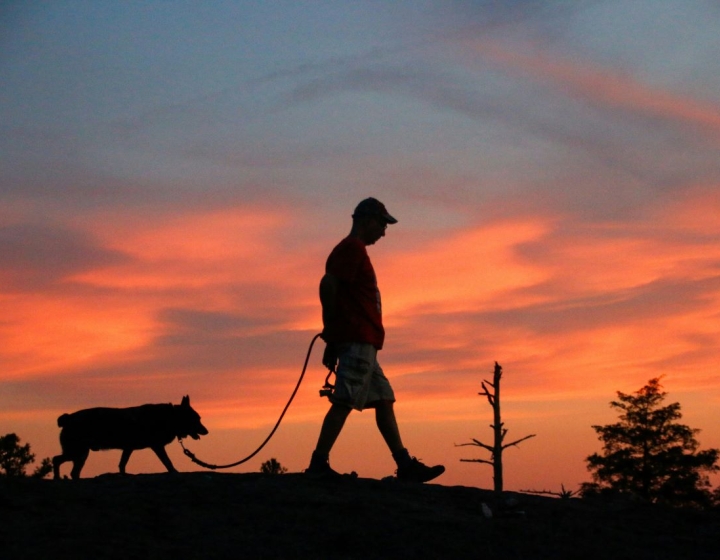Cornell Equine Park celebrates reopening, honors legacy
The Cornell University College of Veterinary Medicine celebrated the grand reopening of the Cornell Equine Park Wednesday, Nov. 13. The event comes after two years of construction and remodeling of the park on Bluegrass Lane, just a mile east of campus.
Lorin D. Warnick, D.V.M., Ph.D. ’94, the Austin O. Hooey Dean of Veterinary Medicine, welcomed the approximately 50 attendees. “We are grateful for the support of the State of New York and the state university construction fund that made these beautiful new facilities possible,” Warnick said. “This provides an up-to-date and safe place for important parts of our equine program, for student education, intern and resident training, and research funded by the Harry M. Zweig Memorial Fund and other sources.”
Warnick’s welcome was followed by remarks from Robert Williams, executive director of the New York State Gaming Commission; Katherine McComas, Ph.D. ’00, vice provost for engagement and land-grant affairs at Cornell; and Dr. Mandi de Mestre, the Dorothy Havemeyer McConville Professor of Equine Medicine and director of Cornell Equine.
Established in 1973, the Cornell Equine Park spans 250 acres of rolling farmland, and is staffed and equipped to accommodate a variety of breeding, foaling, clinical and layup services, as well as teaching and research. The new 14K square foot main barn houses 28 stalls, three treatment stocks, support rooms for wash, tack, tools and feed, a 30-person classroom, as well as a lab, offices, breakroom and more. A new 3.2K square foot commodities barn provides hay and straw storage, and there are paddocks and additional pastures with run-in sheds. The capital budget for this project was $9.8M.
“The Cornell Equine Park has been a critical teaching tool for students to learn to develop key clinical skills for equine medicine, training the next generation of nationwide leaders in equine research, and I applaud Cornell for making the investment into the program that should serve the next 50 years,” Williams said.
The remodeling process began in 2018, when the college undertook a structural investigation to consider the viability of repairing the park’s main barn, which was originally built in the early 1900s to house dairy cows. The study found that it had reached the end of its life and had structural deficiencies. In 2019, the college engaged Chiang | O’Brien Architects for design services, though this phase of the project was interrupted by the COVID-19 pandemic and put on pause until the summer of 2021. Construction resumed in the fall of 2022 and concluded this summer. The original farm and facilities remained operational during design and construction, though services for clients were transferred to the Cornell University Hospital for Animals on the main Ithaca campus.
The ceremony and ribbon-cutting was followed by brief talks by experts stationed around the new facility:
- Heidi Reesink, Ph.D. ’16, associate professor and faculty director of the Cornell Equine Park, and Dr. Kelly Knickelbein, assistant professor, discussed Cornell’s excellence in clinical care, as well as the rehabilitation and layup services available at the park.
- Dr. Gillian Perkins, clinical professor and associate director of the Cornell University Hospital for Animals, and Lindsay Goodale, D.V.M. ’12, equine specialist with Cornell Cooperative Extension, shared how Cornell is training the next generation of students, from high school through to veterinary programs and specialist trainees.
- Dr. Callum Donnelly, assistant professor, presented the equine clinical care offered by the reproductive medicine service.
- de Mestre related the discoveries in equine health and ongoing related research by cross-campus colleagues.
This was followed by lectures on the advancements in equine health care that afternoon in Schurman Hall, supported by the Harry M. Zweig Research Fund. Dr. Paula Cohen, associate dean for research and graduate education, welcomed attendees.
Presenters included:
- de Mestre: “Cornell Equine: Forging a future where all equids thrive”
- Dr. Joaquin Araos, associate professor: “Implementation of time-controlled adaptive ventilation in anesthetized horses to optimize lung function”
- Dr. Luis Campoy, clinical professor: “Refinement of a novel recovery enhancing device (RED) and its impact on the quality of recovery from general anesthesia in adult horses”
- Dr. Bettina Wager, professor: “Mucosal immunity against EHV-1”
- Dr. Scott Palmer, New York’s equine medical director and adjunct professor: “Moisture matters”
“Today, across the equine program, we have Cornell faculty and alumni pushing the boundaries of clinical care, education, sports and discovery — and all of these have passed through [the Cornell Equine Park] facility, either as a student or as a faculty member,” de Mestre said.
Together with other equine facilities across campus, the Cornell Equine Park has played an important role in some of equine medicine’s greatest advances. Said Reesink, “The remodeled Cornell Equine Park is a state-of-the-art facility where we can continue groundbreaking work in horse care management and veterinary care, as well as train the next generation of equine experts.”
Photos by Carol Jennings/CVM
Written by Melanie Greaver Cordova



